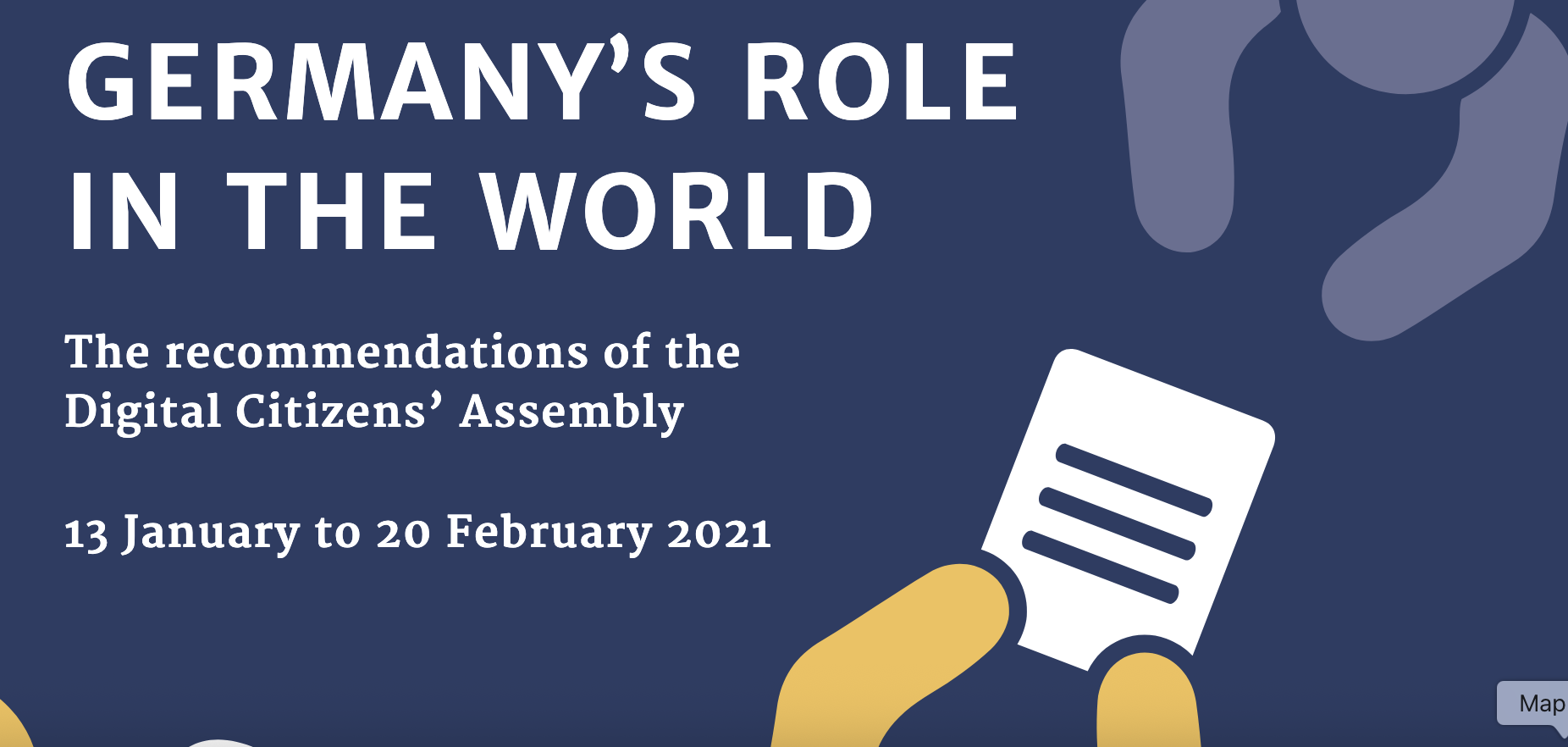Citizens’ Assemblies
Citizens’ assemblies is a unique way to bring ordinary people into the public debate. They help identify priorities and often craft policy recommendations for decision-makers. Often referred a citizens’ jury or mini-public, citizens’ assemblies are a structured process that bring together a randomly selected and democratically representative group of citizens to deliberate on a specific policy issue. Thy are designed to mirror the diversity of society, usually by age, gender, geography, and social background, through a process known as sortition.
Once participants are recruited, they are given balanced information on a specific topic, hear from experts and stakeholders, and engage in moderated discussions. The aim is to reach enough common ground to formulate recommendations for policymakers. Because participants are selected by lot rather than elected or self-appointed, citizens’ assemblies reduce the influence of special interests or partisan politics. They combine evidence-based learning with collective deliberation, showing what ordinary citizens can achieve when they are trusted with complex questions.
Around the world, citizens’ assemblies have been used to address issues ranging from local matters such as urban planning to national debates on reproductive rights, and even European and global challenges like climate change. They create spaces where citizens and decision-makers can listen and think critically together, helping to bridge divides and counter political polarisation. Citizens’ assemblies are especially valuable because they give a voice to people who might rarely participate in other forms of engagement, such as elections.
Citizens’ assemblies are intended to complement the work of elected institutions. They provide a space for reflection and dialogue, helping institutions to make more informed and broadly-supported decisions. For decision-makers, they offer insight to what informed citizens, representing the full diversity of society, think after considering evidence and debate.
Democracy International’s Role
Democracy International has long championed citizens’ assemblies as a unique tool of democratic innovation. We share expertise on how these processes can be designed, implemented, and meaningfully connected to formal decision-making. We advocate for making deliberative processes a more permanent feature of democracy, complementing other tools of participation to ensure that citizens’ perspectives shape the decision that affect them.
Democracy International has both hands-on experience and policy-level experience in deliberative democracy. We have organised briefing tours to Ireland to study the ins and outs of the renowned Irish Citizens’ Assembly. This allowed civil society and researchers to understand deliberative democracy in action for one of the most recognised citizens’ assemblies in the world. At EU level, we regularly observe the European Citizens’ Panels, a transnational citizens’ assembly born from the Conference on the Future of Europe. We analyse their design, inclusiveness, implementation, and potential for long-term integration in EU policymaking. At global level, we hosted and supported one of the 100 randomly-selected citizens for the pioneering Global Assembly on climate, which presented its recommendations at COP26.
Our experience shows that when institutions create the space to listen and citizens are given the time and trust, citizens deliver thoughtful, constructive answers to even the toughest questions. For us, citizens’ assemblies are a step towards a more inclusive and resilient democracy.
Our activities
Global Assembly

In 2021, Democracy International joined an alliance of organisations working on the Global Assembly, the world’s first global citizens’ assembly. The Assembly has seen 100 randomly selected citizens from all over the planet learn about climate change and formulate guidelines for policy.
Citizens' Assembly in Ireland

In January 2019, Democracy International organised a study tour of Dublin, Ireland. German democracy activists met with Irish Members of Parliament and Ministry representatives to learn about the Irish Citizens’ Assemblies model.
Citizens' Assembly Germany's Role in the World

The Citizens’ Assembly on Germany’s Role in the World brought together 160 randomly selected participants for six weeks of online deliberation on key foreign policy issues. The Assembly marked the second national-level citizens’ assembly in Germany.
Team



Our topics
We believe democracy works best when people have a direct say.
Explore how we promote direct democracy, citizen participation, human rights, transparency, and youth engagement. Our work connects people and politics — with the goal of strengthening democratic systems that are open, inclusive, and fair.
Discover all our key topics and learn how we’re shaping the future of democracy.

